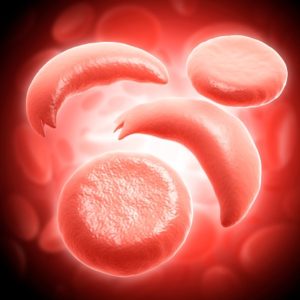Red blood cell transfusions are often used to treat patients with sickle cell disease (SCD), and these patients are at risk for developing alloantibodies that can lead to delayed hemolytic transfusion reactions (DHTRs). The diagnosis of DHTR is often difficult because alloantibodies can be undetectable and symptoms can mimic vaso-occlusive events. In order to gain a better understanding of the incidence and severity of DHTRs, researchers retrospectively analyzed data from 624 patients with SCD who received at least one transfusion over 14 years. New alloantibodies were identified in 124 of 624 patients (19.9%) who received over 47,000 RBC units. A total of 239 alloantibodies were identified; Rh alloantibodies were the most frequent (61%) despite D, C, E, and K1-matching. Of the 178/239 alloantibodies from 89 patients eligible to be evaluated, 54 (30.3%) were associated with laboratory values indicative of DHTR, though less than half of these were clinically diagnosed. DHTRs are common in patients with SCD and further research is needed to prevent, diagnose and treat these transfusion reactions.
Reference:

